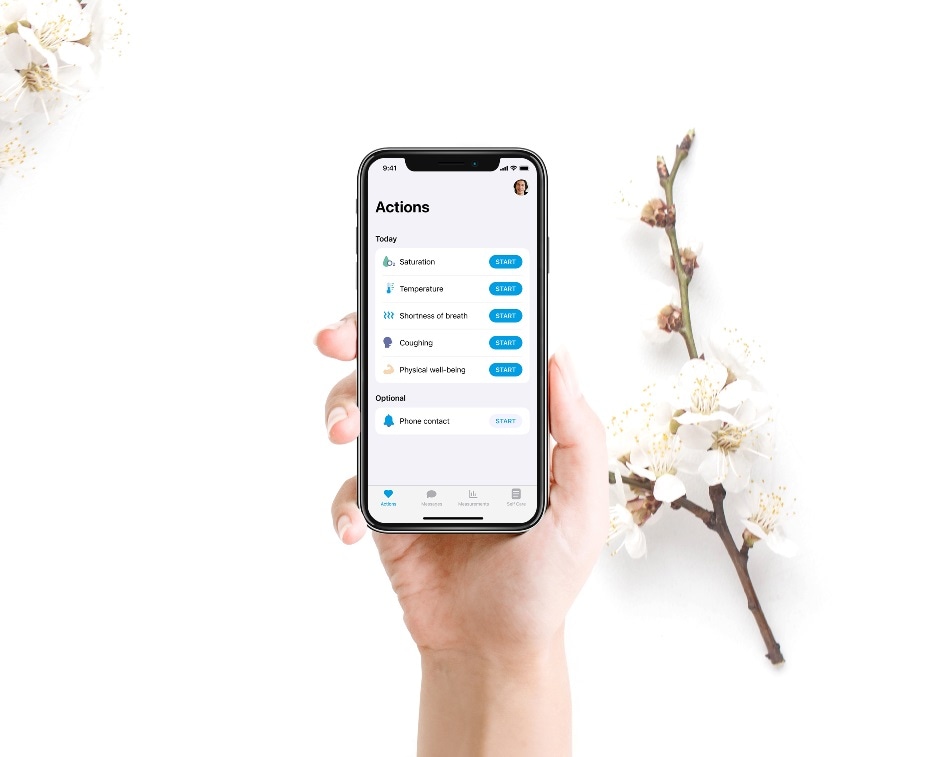Imperial College Healthcare NHS Trust is working with remote healthcare innovator, Luscii to provide a cutting-edge, at-home monitoring platform to support patients with heart failure.

Image Credit: Luscii
The British Society for Heart failure confirms that nearly 1 million people in the UK have heart failure, making it as prevalent as the four most common cancers combined. The condition is as malignant as some of the most common cancers but can respond well with the right treatment.
In its initial phase, the Luscii platform has been rolled out to a distinct cohort of patients who have previously been required to carry out multiple, in-person hospital visits over the course of 2-3 months of such treatment. It is the latest pathway in the Connected Care Programme -iCareConnect - in North West London. These co-ordinated pathways aim to deliver better care that is easier for the patient and more cost-effective.
According to Dr Carla Plymen, Cardiology Consultant & Heart Failure Lead, Imperial College Healthcare NHS Trust, “Up until we deployed Luscii, patients with heart failure needing advice, guidance, checking of vitals and medication from our specialist nurses could only be seen in person. For some, the need for regular hospital visits can be challenging and, during the pandemic, it has also been important to keep hospital visits to a minimum for the safety of patients. Our ability to monitor and consistently engage with patients through this technology is one that I can already see will have significant benefits to patients and those of us charged with their care. Having daily vitals data and regular questionnaires come directly from each patient at home, offers us a far better chance of detecting early symptoms of deteriorating health which we can act on. Likewise, having advice and guidance that’s easily accessible by patients at home via the app facilitates improved self-care and increases quality of life.”
Previous research suggests that remote monitoring for patients with heart disease could:
- Reduce hospital admissions
- Improve detection of patient deterioration based on real-time data analysis
- Improve clinical efficiency through prioritized patient care
- Reduce outpatient visits
Through implementation of the remote monitoring platform, for the first time, patients with heart failure who need regular check ups of their weight, blood pressure and general condition, are able to carry out these checks from the comfort and safety of their own homes, submitting vitals daily via an app using a smartphone or tablet.
For Colin Wren, one of the very first heart failure patients to take part in remote monitoring, the move has had a profound effect on his care experience. “After being on a ward where you are cared for round the clock, the feeling that you have specialists constantly monitoring your health after being discharged is immensely reassuring. I am amazed that this level of care is able to be offered. Measuring and submitting my vitals has now become just a normal part of my day. I find the whole experience a welcome safety blanket.”
An AI-powered ‘Clinical Engine’ that underpins the platform is designed to spot early warning signs of any patient deterioration and alert Imperial College’s team of health care specialists who can immediately triage the situation and provide necessary patient support or resources.
Additionally, the technology helps ensure that remote patients are on optimal heart failure medications and at optimal doses, according to Tom Cooper, Lead Cardiology Pharmacist at Imperial College Healthcare.
Being able to monitor the response to these medications remotely and view patient reported measurements is a valuable tool for pharmacists to optimise medications more efficiently whilst offering a more favorable experience for some patients.”
Tom Cooper, Lead Cardiology Pharmacist, Imperial College Healthcare
The project has been supported by AstraZeneca via Discover-NOW hub that uses de-identified, real-world data for research to quantify the problems in the existing heart failure pathway and evaluate the impacts of the enhancements made across it by Imperial College Trust including the implementation of Luscii remote patient monitoring.